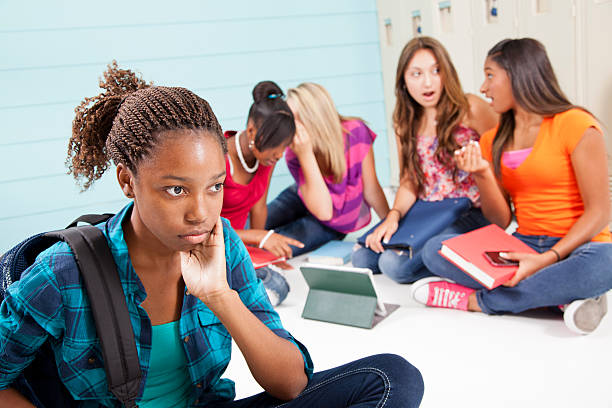School administrators are tense about student suspensions in Nigerian schools. What does Nigerian law provide?
A growing body of students’ rights awareness and consumer protection increases the apparent tensions among parents, school administration, and students. Our Education Lawyers reviewed the judicial attitude of Nigerian Courts.
You will gain insights into managing students’ or pupils’ administrative suspension, the implications of administrative hearings, and why students’ suspension may effectively restore discipline and reduce students’ unruliness.
Background
According to The Guardian Report of September 2024, the Tai Solarin University of Education (TASUED) suspended 47 students for various offences, including impersonation. The TASUED University Senate approved the suspension of students after a hearing in July 2024.
Similarly, the Federal University Oye Ekiti (FUOYE) suspended its 150 undergraduate students in July 2024 for examination malpractice. FUOYE reportedly published the students’ data, including matriculation numbers. The University’s students’ disciplinary committee approved the suspension.
Students’ suspensions in Nigerian schools are rife. Yet, private school operators across Nigeria’s Basic education and secondary schools are primarily tense about using student suspension as a healthy disciplinary measure.
Students’ consumption of pornographic images, bullying, including cyberbullying, examination malpractice, and a general decline in morality and academic performance are explicit threats to the operators of primary and secondary.
Nigeria’s Supreme Court in CHIEKWE IKWUNZE ESIAGA V. UNIVERSITY OF CALABAR & 2 OTHERS while affirming the Court of Appeal per Hon. Justice Nnaemeka Agu, established a framework for students’ suspension by education authorities and schools in Nigeria.
Meaning of Students’ Suspension
In CHIEKWE IKWUNZE ESIAGA V. UNIVERSITY OF CALABAR & 2 OTHERS (supra), the Apex Court found that the term “suspend” cannot be construed to mean “terminate, extinguish, bring to an end”.
The Court held that “suspend” in the context of students’ suspension means to decrease for a while or halt midway but not to bring it to an end.
Furthermore, the Supreme Court stated that students’ suspension connotes a state of affairs that should wait until a particular event occurs.
CONCISE FACTS IN CHIEKWE IKWUNZE ESIAGA V. UNIVERSITY OF CALABAR & 2 OTHERS
Mr Esiaga was a final year student at the Department of Political Science, University of Calabar and the Speaker of the University’s Students Union Parliament.
The University of Calabar suspended Mr Esiaga after its security personnel discovered certain incriminating materials in his possession and under his control.
The University authority was convinced that the insignia of a secret cult group denoted Mr Esiaga’s membership to the body that the then Federal Ministry Government proscribed as illegal.
Nevertheless, Mr. Esiaga instituted an enforcement of fundamental rights action at Calabar High Court Division in 1991.
Did the Apex Court Depart from Garba v. University of Maiduguri?
Garba v. University of Maiduguri recognized that suspension of a student in a university is an internal affair of the University to enhance good administration and is not necessarily a disciplinary measure.
To clarify the distinction between students’ suspension and rustication, the Supreme Court rhetorically asked what a Vice Chancellor who is apprehensive that flames might consume his house would do.
Would the Vic Chancellor be reckoned responsible if they refused to attempt first to begin putting out the fire before calling the fire-fighters?
The Apex Court continued, we must warn in unmistakable terms that in our attempt to reserve or protect what we conceive as the civil liberties or fundamental rights of students of nowadays where the cult system is seeking to bestride and threaten the very existence of these institutions we do not wittingly help in destroying the University system and enthrone anarchy in the name of the protection of the questionable rights of a scoundrel masquerading as a student.
Schools’ Authority to Suspend
According to the Supreme Court Justices in CHIEKWE IKWUNZE ESIAGA V. UNIVERSITY OF CALABAR & 2 OTHERS (supra), a Nigerian School has the authority within its premises to discipline any erring or misbehaving student.
Nevertheless, as envisaged in the Constitution, the principle of fair hearing must be the guiding principle in applying any sanction against a misbehaving student.
Suppose the student’s act amounts to a crime. In that case, the Authorities must report the crime to the police, but this will not preclude the School from exercising its power under the law to punish misconduct by any student.
The Apex Courted affirmed that the Garba v. University of Maiduguri (supra) case has not precluded a School or University from taking action against students’ misconduct within its premises.
The Primacy of Hearing from the Students
In any event, the Nigerian Court will find that FUOYE and TASUED exceeded its disciplinary authority if it failed to hear from the students.
The duty of a School to listen to and ensure fair hearing to Students stemmed from a 1723 English Court’s decision in R v. University of Cambridge Hon. Justice Fortesque remarked, “Even God did not pass sentence upon Adam before God called Adam to make his defence. Adam, says God, where art thou? Hast thou not eaten of the tree, I commanded there that thou shouldst not eat. And the same question was also asked of Eve:”.
The University of Cambridge deprived a recalcitrant scholar of his degree because he insulted the Vice-Chancellor. The University did allow the scholar to proffer a defence.
Conclusion
Nigerian Court upholds a School’s authority to suspend students as long as the authorities follow the natural path of fair hearing.
Private school administrators should boldly employ suspension where appropriate to restore order and discipline in our schools.
SRJ Legal is an education law firm. We complement our education law practice with fintech and commercial dispute (litigation). At the same time, we provide corporate counsel services to businesses and individuals, including families.

